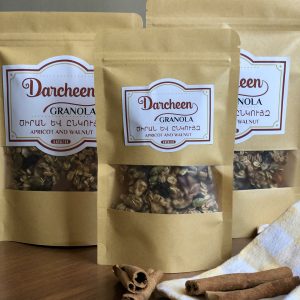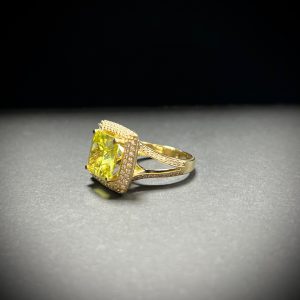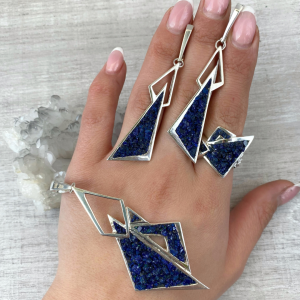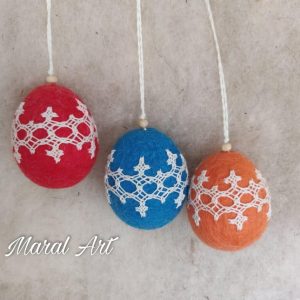-
Leather Cardholder
Card holder made of famous Buttero leather
The product is completely hand made
4 slots for cards
1 middle slot for cards and banknotes
The price includes the gift brand box.$60.00Leather Cardholder
$60.00 -
Apricot And Walnut
Ingredients: oat flakes, walnuts, hazelnuts, natural honey, dried apricots, pumpkin seeds, sunflower seeds, prunes, grape seed oil, salt, vanilla, cinnamon, nutmeg.
Nutritional value 100 g: proteins 11 g, fats 28 g, carbohydrates 30 g. Energy value 100 g – 1741 kJ / 416 kcal.
Store at 22 ° С not higher than և 75% relative humidity.
$3.99Apricot And Walnut
$3.99 -
Gold Diamond and Citrine Ring
voski adamand citrin
$1,995.00$2,250.00Gold Diamond and Citrine Ring
$1,995.00$2,250.00 -
Azurite Silver Earring
Handmade jewelry.
Metal: 925 sterling silver
Gemstone; azurite$68.00 – $150.00
-
-
-
Knitted Fox Doll
Our little fox is ready to go and is looking forward to moving to her new home.
Safety eye was used. So, it is safe for babies. You can let them play without worry.
$8.00Knitted Fox Doll
$8.00 -
Armenian Carpet
Handmade carpet made in Artsakh․ This carpet belongs to the series of Classical Armenian carpets.
$3,100.00Armenian Carpet
$3,100.00
-
Marash Easter Eggs- Set Of 3
Armenian flag colors by Marash embroidery on felted Easter eggs
$24.00Marash Easter Eggs- Set Of 3
$24.00 -
Wild Thyme Tea
Benefits of Go Green Armenia’s wild thyme tea:
‣ Anti-fungal
‣ Fights indigestion and gas
‣ Treats bronchitis and cough
‣ Lowers blood pressure and cholesterol
‣ Keeps the brain from agingThyme has been known since ancient times for its magical, culinary, and medicinal virtues. Tradition held that an infusion of thyme taken as a tea on midsummer’s eve would enable one to see the fairies dancing. Young women wore a corsage of blossoming thyme to signal their availability for romance. The generic name may have been inspired by one of thyme’s traditional attributes. Greek folk herbalists believed that thyme would impart courage (thumus in Greek) to those who used the herb, particularly soldiers. Greek men particularly liked the pungent scent of thyme and would rub the herb on their chests. The Romans believed that adding thyme to bath water would impart energy. They also included thyme in bedding to chase melancholy and to prevent nightmares.
The strong scent of thyme was employed as a moth repellent, and burned as fumigating incense. The philosopher-herbalist Pliny the Elder recommended burning the dried herb in the house to “put to flight all venomous creatures.” In the kitchen thyme has been used for centuries to season sauces, soups, stuffing, and soups. Thyme has long been recognized for its antiseptic properties. The Egyptians used the herb in formulas for embalming the dead. The herb was among those burned in sickrooms to help stop the spread of disease. Oil of thyme was used on surgical dressings and in times of war as recently as World War I, to treat battle wounds.
$3.75 – $33.00Wild Thyme Tea
$3.75 – $33.00

















